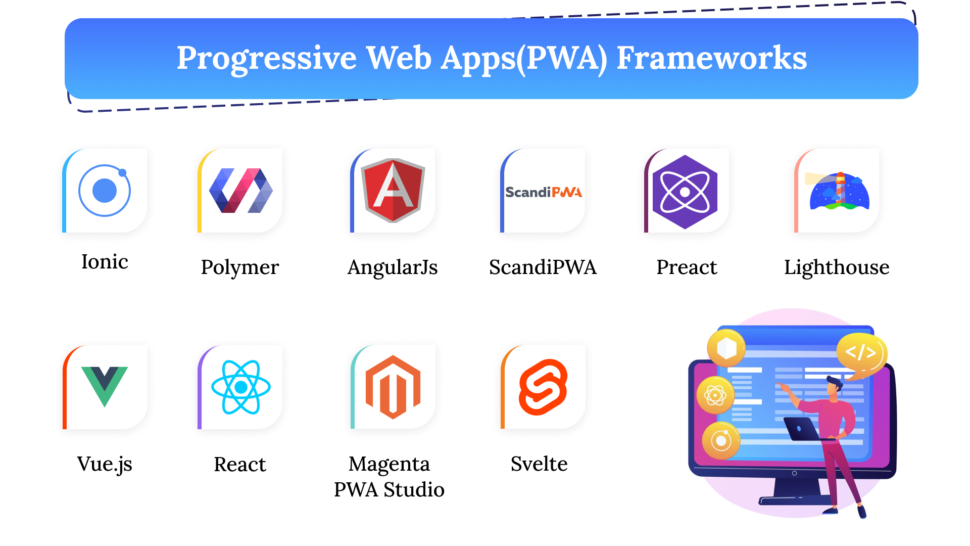Blitz News Digest
Stay updated with the latest trends and insights.
Progressive Web Apps: The Secret Weapon for Modern Businesses
Discover how Progressive Web Apps can supercharge your business, boost engagement, and outshine the competition! Unlock the future today.
What Are Progressive Web Apps and Why Your Business Needs One?
Progressive Web Apps (PWAs) are a modern approach to website development that combines the best features of traditional web pages and mobile applications. They are built using standard web technologies such as HTML, CSS, and JavaScript, enabling them to provide a seamless user experience across devices. PWAs are designed to be reliable, fast, and engaging, making them an ideal solution for businesses aiming to enhance their online presence. For instance, they can be accessed directly from a web browser without the need for installation, yet they offer app-like functionalities like push notifications, offline access, and a responsive design that adapts to various screen sizes.
Implementing a PWA can greatly benefit your business by improving user engagement and conversion rates. With features such as offline capability, users can access your content even without an internet connection, leading to increased retention. Furthermore, PWAs load quickly, reducing bounce rates and enhancing user satisfaction. In a competitive online landscape, a PWA can set your business apart by improving your SEO performance and providing a faster, more reliable experience for your customers. Adopting this technology ensures you are not just keeping up with trends but also positioning your business for future growth.

The Top Benefits of Progressive Web Apps for Modern Businesses
In today's digital landscape, Progressive Web Apps (PWAs) have emerged as a vital tool for modern businesses looking to enhance user experience and engagement. One of the primary benefits of PWAs is their ability to deliver a seamless experience across all devices. By combining the best features of web and mobile applications, PWAs allow businesses to reach a broader audience without the need for separate native app development. This results in improved user retention, as customers can easily access the app without facing the hassles of installation and updates.
Another significant advantage of PWAs is their capability to function offline or in low-connectivity environments. This is possible through the use of service workers, enabling users to access content and features even when they are not connected to the internet. Furthermore, PWAs are generally faster and more reliable than traditional web applications, leading to increased conversion rates. As a modern business, adopting PWAs can also contribute to lower development and maintenance costs, ensuring that you stay competitive in this rapidly evolving digital era.
How Progressive Web Apps Can Enhance User Engagement and Retention
Progressive Web Apps (PWAs) are revolutionizing the way users interact with digital content, providing an immersive experience that bridges the gap between web and mobile applications. By leveraging technologies such as service workers and responsive design, PWAs offer fast loading times and seamless navigation, which significantly enhances user experience. This optimized performance is essential in today’s fast-paced digital world, as studies show that even a one-second delay in loading can lead to a considerable drop in user engagement. With features like offline access, push notifications, and home screen installation, PWAs empower users with greater control and flexibility, ultimately leading to higher retention rates.
In addition to technical benefits, PWAs foster user engagement through personalized experiences. By utilizing data analytics and user behavior insights, businesses can tailor content and notifications to meet the specific needs of their audience. This level of customization not only keeps users informed but also creates a sense of connection that encourages them to return. Furthermore, the app-like functionalities of PWAs, such as smooth transitions and minimal load times, contribute to an overall enjoyable experience that increases the likelihood of users spending more time interacting with the content. By adopting Progressive Web Apps, organizations can cultivate lasting relationships with their users and greatly improve retention rates.